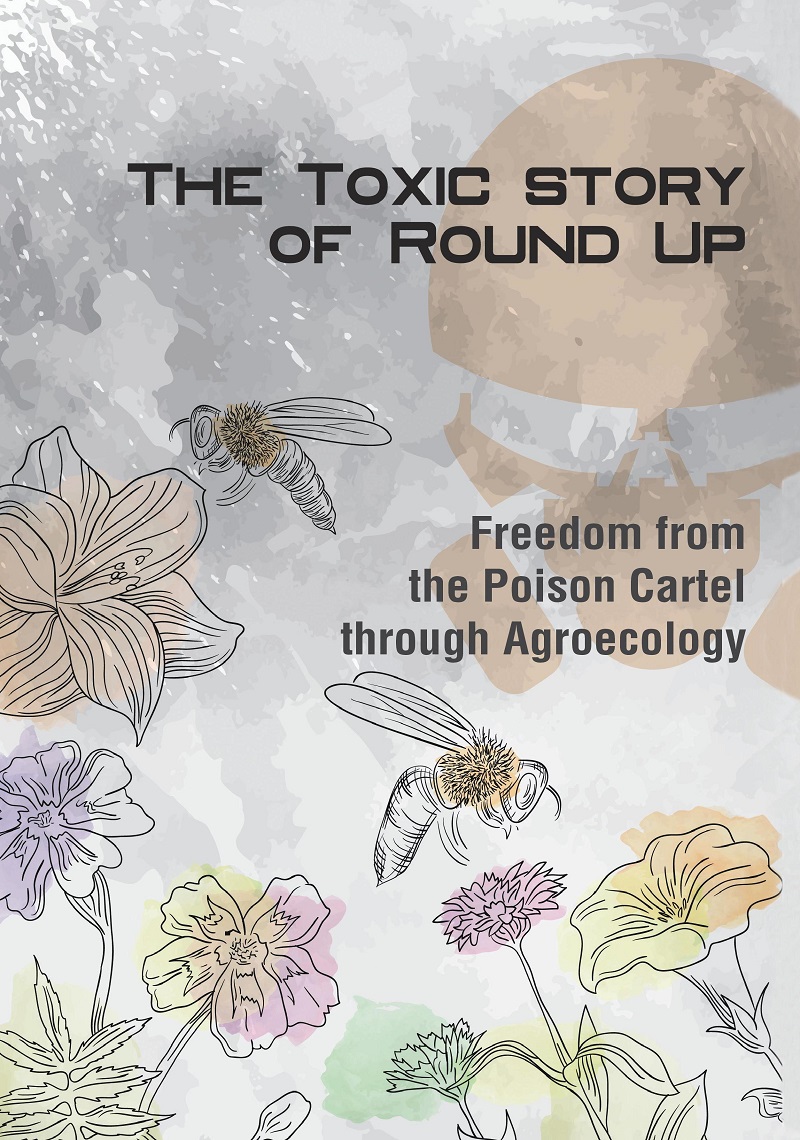The report describes the origins and growth of the Poison Cartel, the history of RoundUp and its basic ingredient, Glyphosate, and of RoundUp ready crops, and their impact on the environment and on people’s health, and the damage they are causing to our ecosystem. It goes on to describe the ways in which these mega-companies gain and keep control of their empires, among other things, in collusion with governmental agencies recently revealed in the Poison Papers and Monsanto Papers, undermining independent science and our democracies.
 The report ends with a section on the many ways that people and movements around the world are building alternatives and seeding the way towards a poison-free and more caring world. The report points the finger at the Poison Cartel, the group of six poison producing seed and agro-giants intent on controlling our food systems. Over the last decades, these companies – which produced lethal poisons during the two world wars – turned to the agricultural market, where they saw enormous potential to keep multiplying their profits. So today they liberally spread agrochemical poisons wherever they can, wiping out millions of species, destroying our ecosystem, poisoning the entire web of life. They enlarge their empires and establish monopolies through free trade neoliberal policies and deregulation of commerce, broadening their control over our seed, our food, our freedom and democracies.
The report ends with a section on the many ways that people and movements around the world are building alternatives and seeding the way towards a poison-free and more caring world. The report points the finger at the Poison Cartel, the group of six poison producing seed and agro-giants intent on controlling our food systems. Over the last decades, these companies – which produced lethal poisons during the two world wars – turned to the agricultural market, where they saw enormous potential to keep multiplying their profits. So today they liberally spread agrochemical poisons wherever they can, wiping out millions of species, destroying our ecosystem, poisoning the entire web of life. They enlarge their empires and establish monopolies through free trade neoliberal policies and deregulation of commerce, broadening their control over our seed, our food, our freedom and democracies.
The only possible response to the growing ecological degradation, poverty, health emergency and malnutrition is to move from the present linear and extractive economic and industrial agricultural paradigm based on a one-way extraction of resources and wealth from nature and society, to, instead, a regenerative ecological and nature-based circular approach, aimed at guiding decision makers not only regarding agriculture, but to apply it to all economic and social choices.
